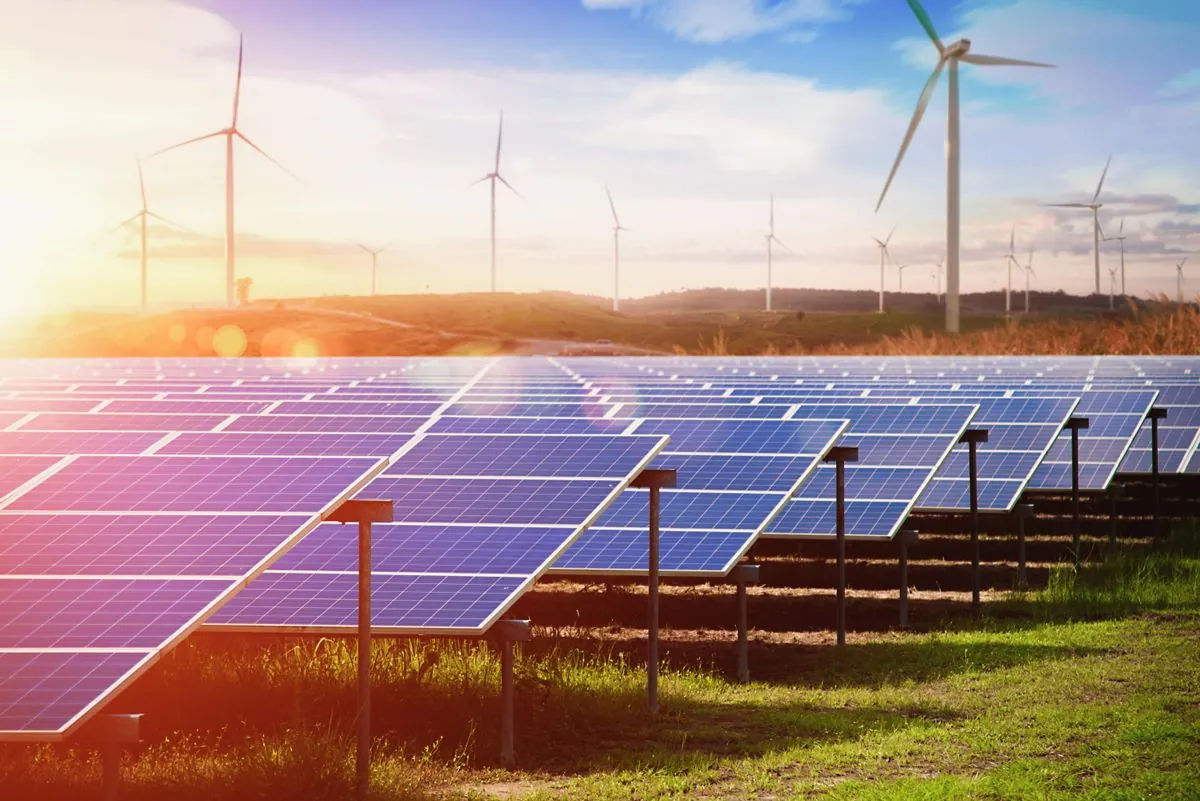UK's Ambitious 2030 Net Zero Grid Goal: A Herculean Challenge
Britain's "Mission Control" unit aims for a carbon-neutral National Grid by 2030, facing immense hurdles. Experts deem the target nearly impossible, requiring a complete overhaul of energy infrastructure and policies.

Britain's ambitious plan to achieve a net zero carbon emissions National Grid by 2030 faces significant challenges, with experts labeling it a near-impossible task. The newly established "Mission Control" unit, led by Chris Stark, former chairman of the Climate Change Committee, has been tasked with this monumental goal.
David Newbery, director of the Energy Policy Research Group at the University of Cambridge, expresses skepticism about the feasibility of the target. The plan, set by the Department for Energy Security and Net Zero (DESNZ), aims to achieve net zero five years earlier than the government's original 2035 goal.
To meet this ambitious target, Britain must significantly increase its renewable energy capacity, revolutionize its planning system, and drive innovation in new technologies. The scale of the challenge is immense, considering that as of June 2022, zero-carbon sources accounted for 52% of Britain's electricity generation, up from 42% the previous year.

While progress has been made in greening the electricity supply, natural gas still plays a crucial role, providing around a third of energy production. In August 2024, zero-carbon sources supplied 60% of Britain's electricity, with wind generating nearly a third, solar 8%, and nuclear 18%. However, gas remained necessary to meet about one-sixth of the nation's electricity needs.
The task is further complicated by the projected increase in electricity demand. The Climate Change Committee anticipates a 50% rise by 2035 and a doubling by 2050, driven by the adoption of electric vehicles and heat pumps to achieve the broader net zero target by 2050.
David Newbery estimates that Britain will need to triple its renewable energy production by 2030 to reach a net zero grid. This aligns with Labour's manifesto pledge to double onshore wind, triple solar power, and quadruple offshore wind production within the next six years.
However, logistical challenges abound. The current 14-year timeline for building electricity transmission lines to connect wind farms to homes is a significant hurdle. Even if reduced to seven years, as suggested by independent electricity networks commissioner Nick Winser, it may not be sufficient to meet the 2030 target.
"It's just unbelievably difficult to do anything in this country in a reasonable timescale and at a sensible cost. But maybe we can transform the world so that we can do it."
The success of this ambitious plan hinges on Labour's promised planning revolution, particularly in streamlining rules for renewable development. Overcoming local objections and managing the political process will be crucial.
Experts suggest that the most visible changes will likely be an increase in solar panels and onshore wind farms, which can be deployed more rapidly than offshore projects. East Anglia, with its low population density and agricultural land, could be a prime location for solar farms to supply London and the South East.
However, even with a massive increase in renewable production, challenges remain. Carole Nakhle, chief executive at Crystol Energy, emphasizes the need for backup generation to compensate for the intermittency of solar and wind power. The most significant challenge lies in decarbonizing the last 15% of Britain's grid.
Potential solutions include nuclear energy, hydrogen electricity generation, and advanced storage technologies. Importing green energy from Europe, such as nuclear power from France or solar power from Germany, is another option. As a last resort, carbon offset programs may be necessary to achieve the final stages of net zero emissions.
As Britain embarks on this ambitious journey, the success of the "Mission Control" unit will depend on overcoming numerous obstacles and driving unprecedented change in the country's energy landscape.


































